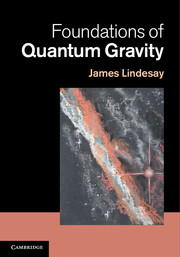Book contents
- Frontmatter
- Contents
- Preface
- Notations and Conventions
- Introduction
- Part I Galilean and special relativity
- Part II General relativity
- 5 Fundamentals of general relativity
- 6 Quantum mechanics in curved space-time backgrounds
- 7 The physics of horizons and trapping regions
- 8 Cosmology
- 9 Gravitation of interacting systems
- Appendix A Addendum for Chapter 1
- Appendix B Addendum for Chapter 2
- Appendix C Addendum for Chapter 3
- Appendix D Addendum for Chapter 4
- Appendix E Addendum for Chapter 5
- Appendix F Addendum for Chapter 7
- Appendix G Addendum for Chapter 8
- References
- Index
8 - Cosmology
from Part II - General relativity
Published online by Cambridge University Press: 05 July 2013
- Frontmatter
- Contents
- Preface
- Notations and Conventions
- Introduction
- Part I Galilean and special relativity
- Part II General relativity
- 5 Fundamentals of general relativity
- 6 Quantum mechanics in curved space-time backgrounds
- 7 The physics of horizons and trapping regions
- 8 Cosmology
- 9 Gravitation of interacting systems
- Appendix A Addendum for Chapter 1
- Appendix B Addendum for Chapter 2
- Appendix C Addendum for Chapter 3
- Appendix D Addendum for Chapter 4
- Appendix E Addendum for Chapter 5
- Appendix F Addendum for Chapter 7
- Appendix G Addendum for Chapter 8
- References
- Index
Summary
A synopsis of Big Bang cosmology
One of the fundamental principles guiding the expected behaviors of the cosmology is a generalization of ideas of Copernicus, known as the cosmological principle. This principle presumes that no non-rotating observer at rest to the CMB radiation is more special than any other. Since the observed universe has large-scale uniformity, the cosmological principle imposes an overall homogeneity and isotropy to the universe. In addition, the dynamics of most of the aggregate features in the universe can be described assuming that the energy-momentum content of the cosmology is consistent with being an ideal fluid.
The Friedmann-Lemaitre equations 8.6, which describe the dynamics of an ideal fluid cosmology, are spatially scale invariant (if the cosmological constant is negligible), but not temporally scale invariant. The form of those equations that govern a spatially flat (k = 0) expansion satisfies spatial scale invariance (at least to a very good approximation), due to the fact that the energy densities that drive the dynamics are intensive thermodynamic variables. However, there is apparently a beginning time t0 ≈ 13.7(±0.2) billion years ago, which represents the earliest backwards-looking extrapolation of the standard model expansion called the Big Bang. The physics during these earliest moments is an active field of research. Thus, the cosmological principle does not refer to the temporal evolution of the universe.
- Type
- Chapter
- Information
- Foundations of Quantum Gravity , pp. 309 - 344Publisher: Cambridge University PressPrint publication year: 2013



